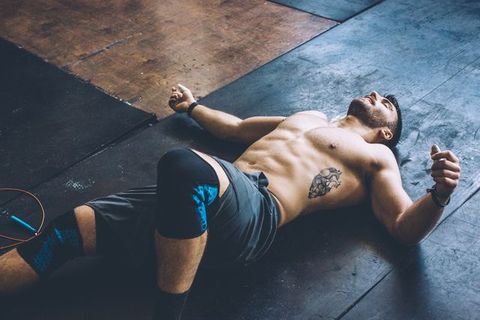
Regular exercise has tons of well-documented health benefits, but have you considered how much impact your afternoon workout has on your nightly snooze? New research indicates that exercise — particularly moderate to intense exercise, whether it be cardio, strength training or yoga — may also help you sleep better.
Sleep is one thing we could all use more of these days. The CDC estimates that approximately one in three Americans doesn’t get the seven hours of sleep they need for optimal health. Anyone getting less than that coveted seven hours of sleep per day is putting themselves at an increased risk of developing chronic conditions such as obesity, diabetes, high blood pressure, heart disease, stroke, and frequent mental distress.
But when was the last time you got seven or more hours of sleep for multiple nights in a row? Between work, family obligations, and other life responsibilities, that might be hard to recall. For better or worse, you’re not alone. If you’re among the one third of Americans not getting the sleep you need, you might want to boost your workout frequency and intensity.
Sweat More to Sleep Better
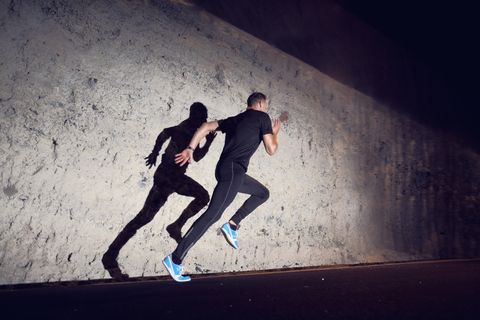
Getty ImagesStanislaw Pytel
A 2017 systematic review of the interrelationship between sleep and exercise discovered that there is mounting evidence suggesting that physical activity is an effective intervention for people who don’t get sufficient quantity or quality of sleep. While the physiological function of sleep in regulating hormonal and metabolic processes is still not completely understood, the study suggests that there is reason to believe that moderate aerobic exercise or resistance training can be beneficial to one’s sleeping habits.
At first, sleep and exercise might seem like they have opposite effects; exercise can pump you up, while sleep can leave you sluggish until you jolt yourself awake with your morning coffee. But research suggests exercise can work both ways — as a strategy to energize you, and as a way to wear you down to get a good night’s rest. Multiple studies have also found a correlation between people who have trouble sleeping and those who spend less time exercising.
“Exercise has a variety of potentially sleep-impairing and sleep-enhancing effects on the body,” explains Dr. Robert Graham, M.D., P.H., and founder of FRESH Med NYC at Physio logic. “Notably, it can raise heart rate, body temperature and alertness which, if they remain elevated, could interfere with sleep. On the other hand, exercise can help reduce anxiety,” which Dr. Graham notes is “a plus for getting more and better sleep.”
Additional research found that participating in exercise training had a moderate effect on sleep quality and reduced the need for sleep enhancing medication in middle aged adults with insomnia, making it a good — and cheap — alternative to drugs. More research is needed to directly compare exercise and sleep medications, however, to consider exercise as an effective first-line of treatment.
Delayed Snooze
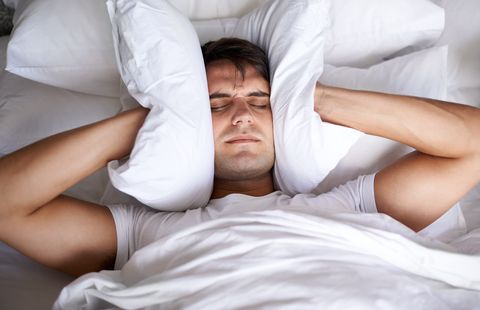
Getty ImagesPeopleImages
Dr. Graham reminds you to be patient and think of the process of attaining more sleep as a gradual one, not one with immediate effects. An article from Psychology Today looks at a 2013 study by the Journal of Clinical Sleep Medicine that determines the obvious — that regular exercise does contribute to better sleep — but with an important clause: The improved sleep might take place down the road.
The article claims that “the study suggests that exercise may not have an immediate impact on sleep, but in fact may take several weeks or months to significantly change sleep,” before continuing to note that the study’s focus group “experienced no significant improvements” in their sleep after two months into the 16-week study period.
But after the 16 weeks were up, their sleep quality had greatly improved: “Exercising subjects in the 16-week study eventually wound up sleeping as much as an additional 1.25 hours per night more than their non-exercising counterparts.”
How to Get Those Zzz’s
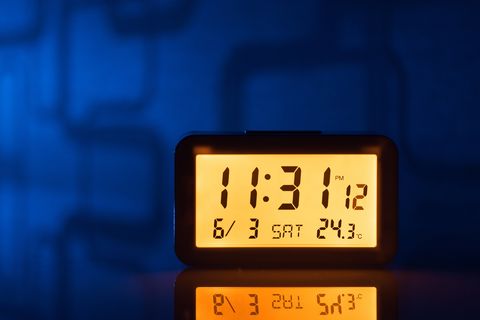
Getty ImagesMirageC
So, you’ve been listening and you’re ready to improve your sleep using exercise. Now what?
If you’re thinking logically, you might assume that you shouldn’t exercise at all within a few hours of trying to sleep. That might not be the best practice, however. “It’s true that for most people it’s not a good idea to exercise right before bedtime,” said Graham. “But surprisingly, most studies have found that early evening exercise does not impair sleep quality.”
Graham instead advised that for best results, don’t work out too strenuously right before bed. Ideally, try workouts for 20 minutes or more — whatever it takes for your body to feel hot — at least three hours before you want to sleep. As your body temperature cools, it acts as an additional signal for your body to sleep. Conversely, raising your core temperature immediately before bed will probably increase the time it takes you to fall asleep and may interfere with sleep quality.
Get Fitter, Get Sleepier
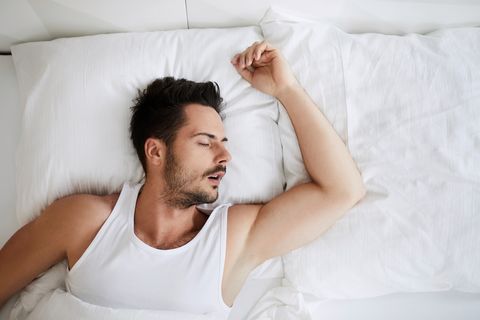
Getty ImagesBartekSzewczyk
According to the New York Times’ review of the literature, “It is impossible to yet know the sleep-related impacts of workouts of different types (like weight training), intensities or timing, including morning or late-evening sessions.” But with both exercise and sleep having proven benefits for your overall health, most studies conclude that pairing the two closely can only have positive effects on one’s mental and physical health and wellbeing.
“By now we know that exercise and sleep are a match made in heaven,” Graham said. “Studies show that making time to work out may be the key to a better night’s sleep — and it doesn’t really matter what time of day you work out, either. To ensure a good night sleep and a fresh start to tomorrow we recommend that you quit counting sheep and start counting your blessings.”
Graham says to start off with moderate physical activity to try to kickstart your trip to dreamland — so short runs, bike rides, weight lifting, and other activities that won’t push your heart rate through the roof are probably best. If you’re a HIIT junkie, save those intense group classes for the next morning to wake you up.
Just get moving, somehow. “Something is better than nothing,” said Graham.
Source: Read Full Article
